After Moria Fire, Migrants Cling To Hope In Olive Groves
A film of pungent smoke still hangs over the olive groves of Moria two days after Greece's biggest and most notorious migrant camp was destroyed by fire.
Gaelle Koukanee and her friend Clarisse were living in the same container when the fire broke out on Tuesday night. They are now homeless.
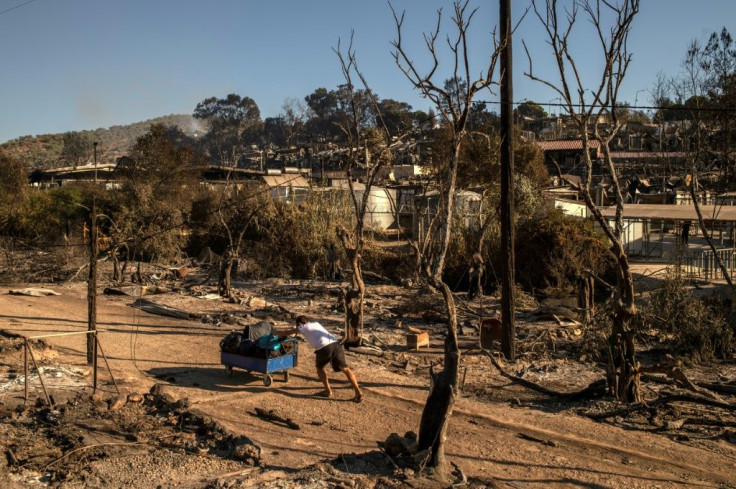
"We don't know anything, nobody tells us where we're going to be taken," Clarisse said.
"My youngest daughter, five years old, fainted yesterday. She hasn't eaten for three days. The police don't even want us to go to the supermarket to buy groceries."
Koukanee, a 21-year-old Congolese, is sitting in the shade of an olive tree. She is several months pregnant.
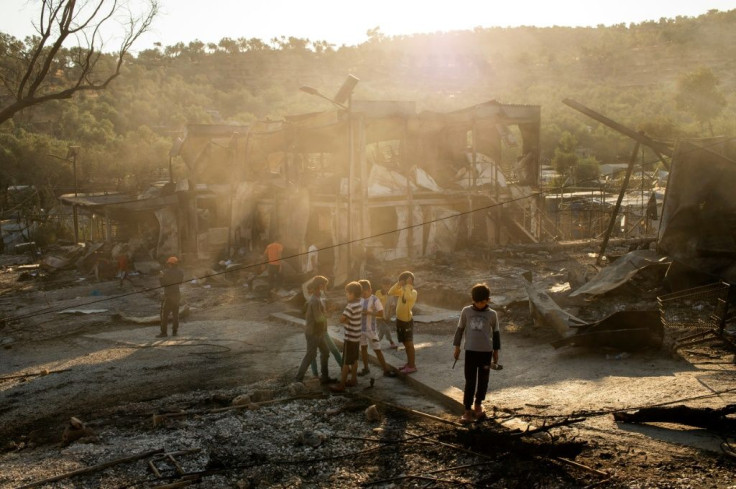
"Yesterday, police officers fired tear gas," Koukanee said. "We have children, old people, disabled people among us. Why this lack of humanity?"
Life in the camp was already tough, she said. "We had no toilets, no showers and we were afraid, as single women, to walk around at night. But now I am even more anxious than before about my future."
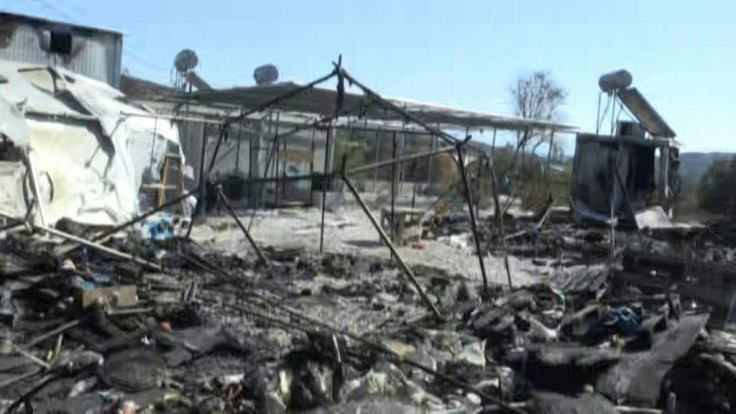
Before arriving on the Greek island of Lesbos nearly a year ago, Koukanee "dreamt of returning to literature studies and rebuilding myself".
"I'm not sure if I should make plans now. If I survive all this, it will already be a miracle," she said, adding that she has not seen a doctor in weeks.
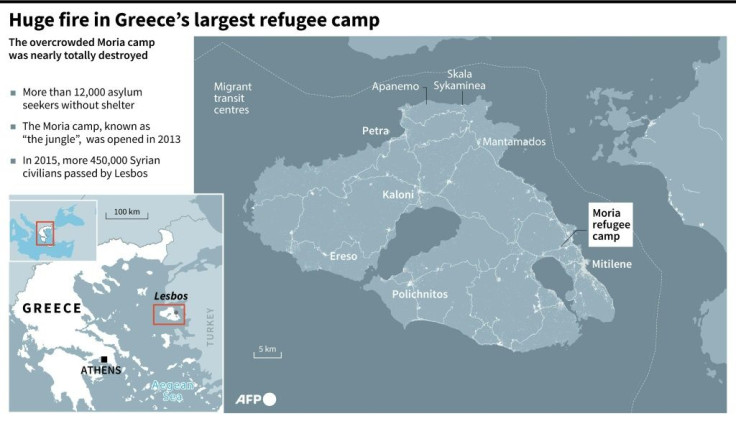
Some 13,000 former camp residents have been left stranded in the surrounding countryside after their cabins, makeshift homes and tents were burnt to the ground.
Some crouch at the roadside in the burning sun, while others rest beneath the shade of trees, surrounded by the few possessions they managed to salvage from the rubble.
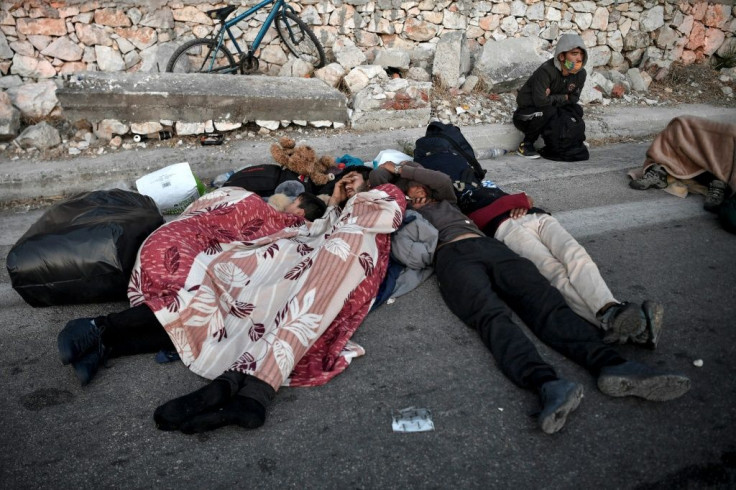
On Thursday, the Greek authorities sent a ferry to accommodate some of the more vulnerable migrants. But the information does not seem to have reached everyone.
"Everything burnt. We have nothing left and the authorities don't seem to care about what will become of us," said Clarisse, who had been living in the camp for 10 months.
On the road from Moria to the port of Panagiouda, Syrian Fatma al-Hani holds her two-year-old in her arms.
"We've lost everything, we were abandoned, without food, water or medicine," said Hani, who escaped with nothing but her identity papers.
But she is most concerned about the youngest of her two children, who has been suffering from a fever and vomiting since Thursday morning.
"So this is Europe? I can't take it any more, I just want my baby to be healthy, to grow up in peace," she said, breaking down in tears.
Where the camp's containers once stood, warped tent frames stick out of the rubble like charred skeletons.
A stray ginger cat stalks through the rubble, a flash of colour in an otherwise blackened landscape.
"There is nothing left of it," said the Syrian in his seventies, who needs a cane to walk.
For Anouar, this landscape "looks like the end of the world."
© Copyright AFP 2024. All rights reserved.




















